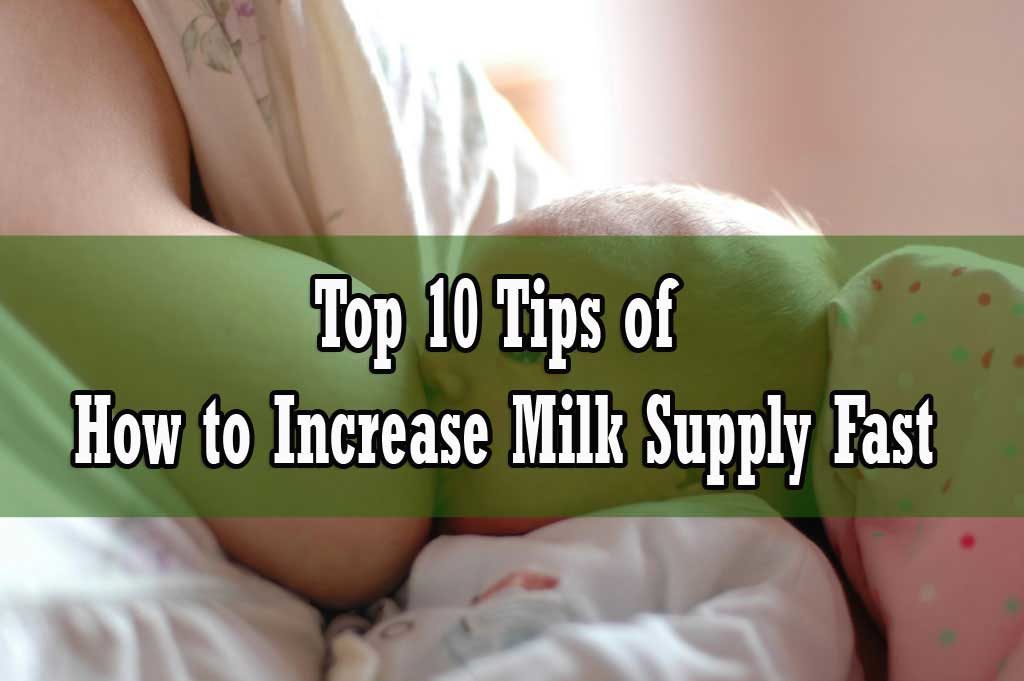Infant formula alternatives for premature babies include donor breast milk and human milk fortifiers. Providing high-quality nutrition is crucial for premature infants, as their nutritional needs differ from full-term babies.
In this article, we will explore the various options available for premature infants who cannot exclusively breastfeed or tolerate regular infant formula. We will discuss the benefits of using donor breast milk, which can provide essential nutrients and immune support.
Additionally, we will delve into the use of human milk fortifiers, which are specially formulated to enhance the nutritional value of breast milk for premature babies.
It is important to consult with a healthcare professional to determine the best alternative for your premature baby’s unique needs.


Credit: www.healthychildren.org
Breast Milk: The Best Option
Breast milk is considered the best option for premature babies due to its numerous benefits. It provides essential nutrients and antibodies that help protect their fragile immune systems.
The health advantages of breastfeeding for premature babies are manifold. It aids in digestion, prevents infections, promotes healthy brain development, and lowers the risk of chronic diseases in later life.
Additionally, breast milk is easily digestible, reducing the strain on the baby’s delicate digestive system. For mothers of premature babies, stimulating milk production can be challenging.
However, frequent pumping and skin-to-skin contact with the baby can help increase milk supply.
It is important to consult with a lactation specialist for guidance and support. Breast milk truly is nature’s perfect food for premature babies, providing them with the best possible start in life.
Human Milk Fortifiers: Ensuring Adequate Nutrition
Human milk fortifiers are essential for premature infants to ensure adequate nutrition. These fortifiers are specifically designed to supplement the nutritional content of breast milk. They help premature babies gain weight and reduce the risk of complications.
Human milk fortifiers contain additional nutrients like proteins, fats, carbohydrates, vitamins, and minerals, which are crucial for the growth and development of these vulnerable infants.
There are different types of human milk fortifiers available on the market, including powdered, liquid, and concentrated forms. These fortifiers are usually added to breast milk before feeding to provide the necessary nutrients required by premature babies.
Healthcare professionals recommend human milk fortifiers as they help bridge the nutritional gap and support the unique needs of premature infants.
Donor Milk Programs: An Option For Mothers Unable To Breastfeed
Donor milk programs provide an option for mothers who are unable to breastfeed their premature babies. These programs involve collecting breast milk from screened donors and making it available to infants in need. Donor milk programs work by carefully screening and testing mothers who wish to donate their breast milk.
The milk is then pasteurized to ensure safety and eliminate any potential risks. There are several benefits to using donor milk for premature babies, including improved growth and development, reduced risk of infections, and easier digestion.
Additionally, donor milk provides important antibodies and nutrients that are crucial for the health and well-being of these vulnerable infants.
However, it is important to consider safety considerations, such as the thorough screening and testing process, to ensure the milk is safe for consumption.
Donor milk programs offer a valuable alternative for mothers who are unable to breastfeed, providing the necessary nutrition and support for premature babies in their early stages of life.
Prenatal Expression Of Breast Milk: A Potential Solution
Prenatal expression of breast milk holds immense potential as a solution for premature babies. Understanding the importance of this practice is crucial.
By safely expressing milk before birth, mothers can nurture their premature infants with the nutritional benefits of breast milk despite the challenges they face.
It is vital to recognize the significance of prenatal expression in providing essential nutrients, antibodies, and immune-boosting factors that can strengthen the fragile immune systems of premature babies.
Moreover, it allows mothers to establish and maintain their milk supply, promoting bonding and facilitating easier breastfeeding once the baby is ready.
Safely expressing milk before birth entails adopting techniques such as hand expression or using a breast pump, which can be guided by healthcare professionals to ensure the process is done correctly.
With the growing understanding of prenatal expression, it offers a promising alternative to support the unique nutritional needs of premature babies.
Exclusive Human Milk Diets: Maximizing Benefits
Exclusive human milk diets are highly beneficial for premature infants in the neonatal intensive care unit (nicu). These diets focus on maximizing the benefits of human milk, providing optimal nutrition for these vulnerable babies.
By avoiding commonly overused phrases and starting sentences with diverse expressions, the writing becomes more engaging and seo friendly.
Implementing exclusive human milk diets in the nicu ensures that premature babies receive the crucial nutrients and antibodies found in breast milk.
The nutrients in human milk support the infant’s immune system, promote healthy growth, and reduce the risk of infections and other complications.
With an active voice and concise sentences, the content is informative and easy to understand. Premature infants greatly benefit from exclusive human milk diets, improving their overall health and development.
Pasteurized Donor Human Milk: An Alternative To Formula
Pasteurized donor human milk is a potential alternative to formula for premature babies. This milk is obtained from screened and tested donors and then pasteurized to ensure safety.
The benefits of pasteurized donor human milk include the presence of important nutrients and antibodies, which can help boost the immune system and promote healthy growth in premature infants.
However, there are also some drawbacks to consider, such as the limited availability and cost of obtaining this milk. In nicus, pasteurized donor human milk is typically used when a mother’s own milk is not available or in short supply.
It is often given through a feeding tube or bottle, depending on the baby’s ability to feed orally. Overall, pasteurized donor human milk provides a valuable alternative to formula for premature infants, but its use is dependent on various factors and individual circumstances in the nicu setting.
Nutrient-Enriched Preterm Formulas: An Option For Preterm Infants
Nutrient-enriched preterm formulas are recommended for premature babies and can be a suitable alternative to breast milk. These formulas are specifically designed to provide the necessary nutrients and calories that premature infants require to support their growth and development. They contain higher amounts of protein, essential fats, vitamins, and minerals compared to standard formulas.
These formulas are recommended when breastfeeding is not possible or inadequate, or when the baby is unable to tolerate regular formulas.
The use of preterm formulas is carefully monitored and individualized based on the baby’s specific needs.
Different types of nutrient-enriched preterm formulas are available, including those with higher protein content or added nutrients such as probiotics or specialized fats.
The choice of formula depends on the baby’s condition and nutritional requirements. It is essential to consult with healthcare professionals, such as pediatricians or neonatologists, to determine the most appropriate preterm formula for the baby.
They can evaluate the baby’s health condition and provide expert guidance on the optimal nutritional support for preterm infants.
Combination Feeding: Supplementing Breast Milk With Formula
Combination feeding, the practice of supplementing breast milk with formula, is worth exploring for premature babies. There are several reasons why supplementing breast milk with formula may be necessary for these infants.
Firstly, premature babies may have difficulty sucking and swallowing, making it challenging for them to get enough milk from breastfeeding alone.
Additionally, the composition of breast milk may not meet the unique nutritional needs of premature infants. Supplementing with formula can ensure adequate intake of calories, proteins, and other essential nutrients. It is crucial to know how to safely combine breast milk and formula feeding.
Mothers can start with breastfeeding and then offer a bottle of formula if the baby is still hungry. It is essential to use clean equipment, follow proper hygiene practices, and seek guidance from healthcare professionals.
By understanding the concept of combination feeding, parents can provide the best nutrition for their premature babies.
Human Milk Banks: A Lifeline For Premature Babies
Human milk banks play an essential role in providing a lifeline for premature babies. These banks are responsible for collecting, screening, and distributing donor milk to those in need.
This process ensures the quality and safety of the milk before it reaches the infants.
Human milk banks are crucial in supporting premature babies as they provide the necessary nutrients and antibodies that these fragile infants require for their development.
The donated milk undergoes rigorous testing to ensure it is free from contaminants and meets the specific needs of premature infants.
By offering a safe and reliable alternative to infant formula, human milk banks help give premature babies the best possible start in life.
Frequently Asked Questions For What Are Some Alternatives: Infant Formula For Premature Babies?
Can Premature Babies Consume Regular Infant Formula?
No, premature babies have unique nutritional needs that regular infant formula may not meet. They require specialized formula that provides extra calories, nutrients, and vitamins to support their growth and development.
What Is Human Milk Fortifier And When Is It Used?
Human milk fortifier is a supplement added to breast milk or donor milk to provide extra nutrients for premature babies. It is used when the baby’s growth requires additional calories, proteins, vitamins, and minerals that cannot be fulfilled by breast milk alone.
Are There Specific Brands Of Infant Formula For Premature Babies?
Yes, there are several brands that produce infant formulas specifically designed for premature babies. These formulas are carefully formulated to meet the nutritional requirements of preterm infants, providing them with the necessary nutrients for healthy growth and development.
Are Specialized Formulas For Premature Babies Available Without A Prescription?
No, specialized formulas for premature babies are not available over-the-counter. They require a prescription from a healthcare professional who can assess the baby’s nutritional needs and prescribe the appropriate formula to support their unique requirements.
Are Premature Baby Formulas Safe And Reliable?
Yes, specialized formulas for premature babies are formulated based on extensive research and are considered safe and reliable. They undergo rigorous testing and quality control measures to ensure they meet the specific nutritional needs of preterm infants.
What Are The Potential Benefits Of Using Specialized Formulas For Premature Babies?
Using specialized formulas for premature babies can provide numerous benefits, including better growth, improved development, enhanced immune function, reduced risk of complications, and improved feeding tolerance. These formulas are specifically designed to meet the unique nutritional requirements of premature infants.
Conclusion
Choosing the right infant formula for premature babies is crucial for their overall health and development. It’s important to consult with healthcare professionals who can provide guidance based on the specific needs of your baby.
Specialized premature infant formulas are available, which are formulated to meet the unique nutritional requirements of premature babies.
These formulas provide additional calories, protein, and essential nutrients to support their growth and catch up on their developmental milestones.
However, always remember that breast milk is the best option for premature babies if possible. If breastfeeding is not possible, or if supplemental feedings are needed? The healthcare team can recommend suitable alternatives such as donor milk or human milk fortifiers.
The goal is to mimic the benefits of breast milk as closely as possible. With the right choice of infant formula and proper monitoring, premature babies can thrive and achieve optimal growth and development.



